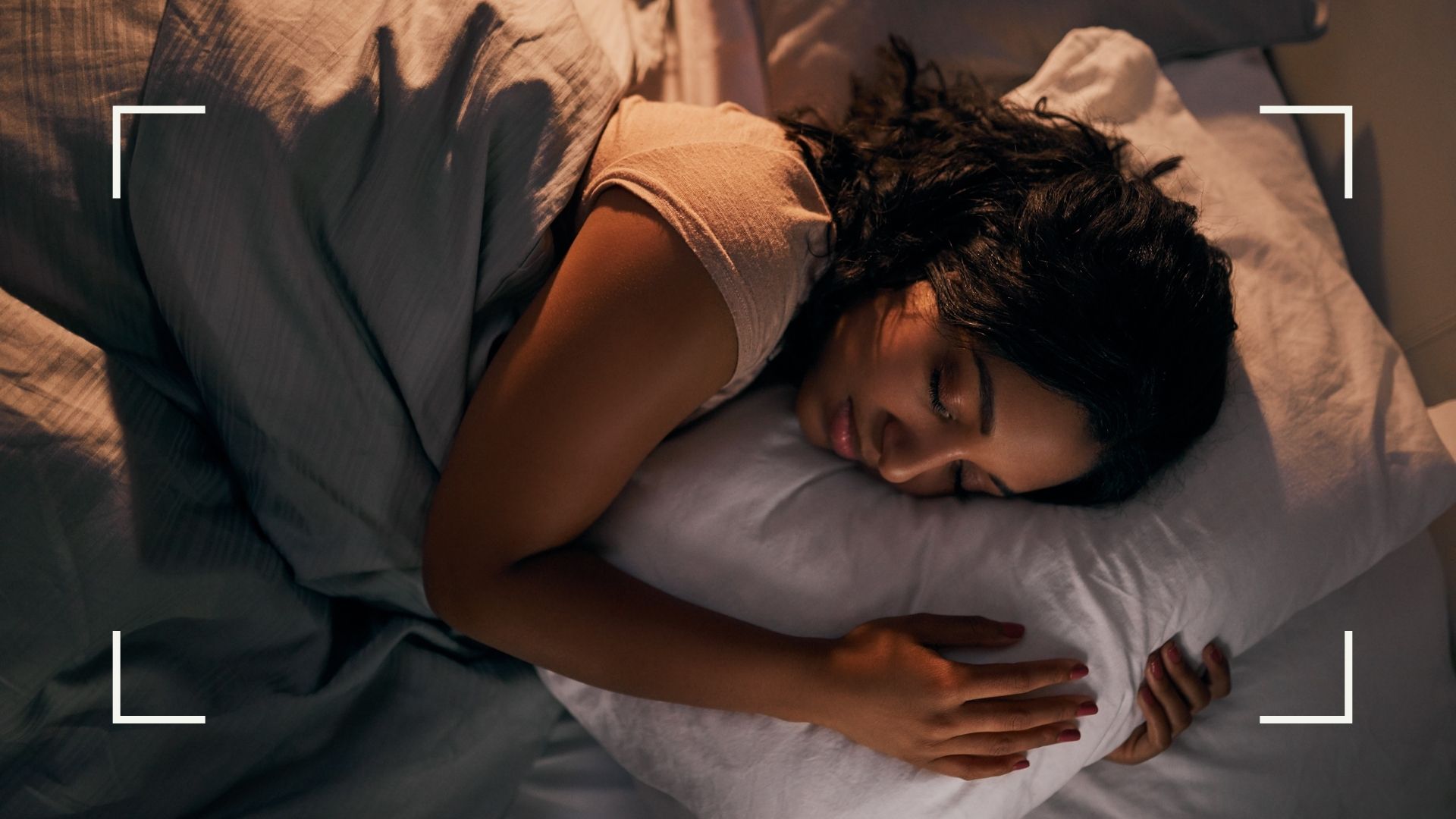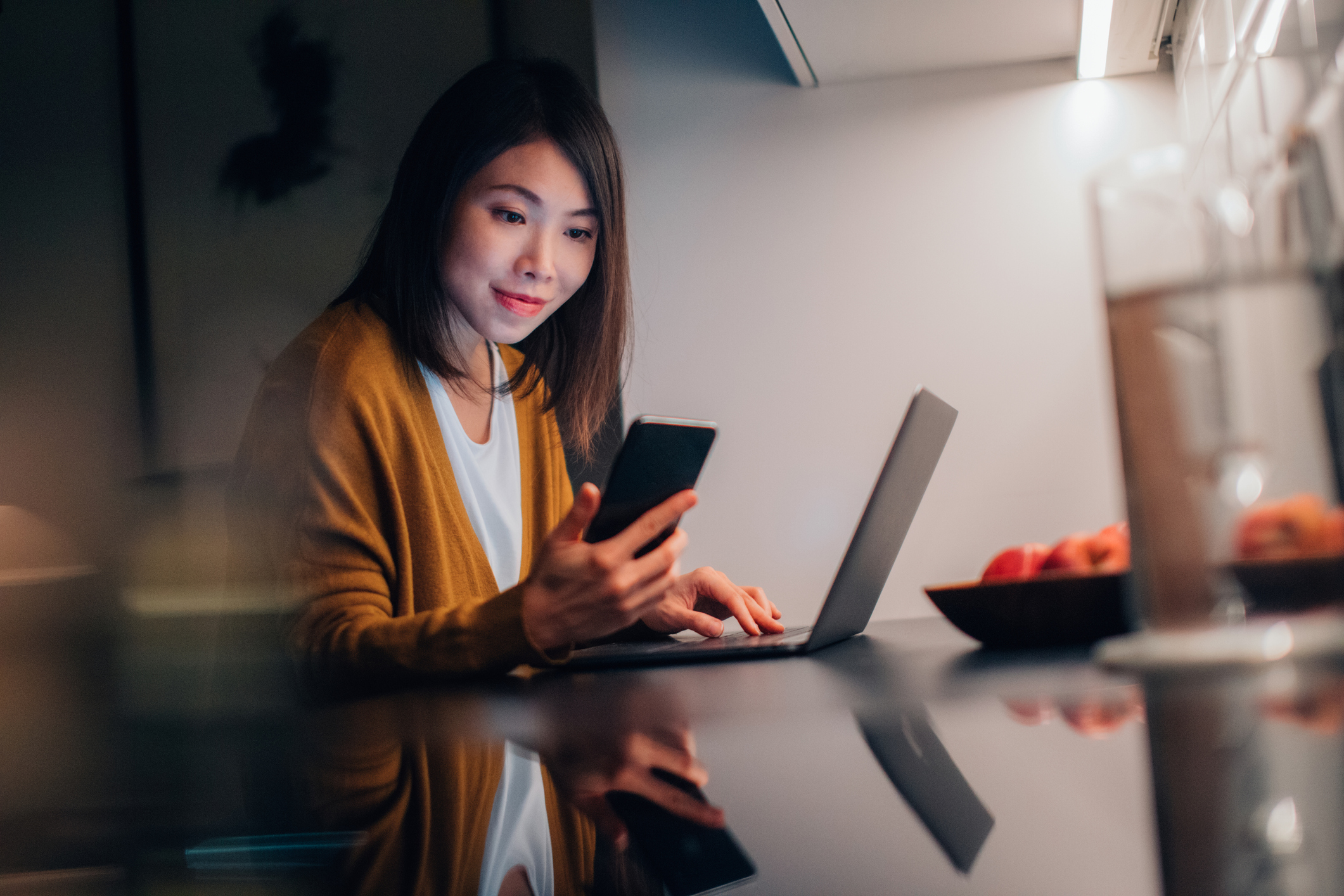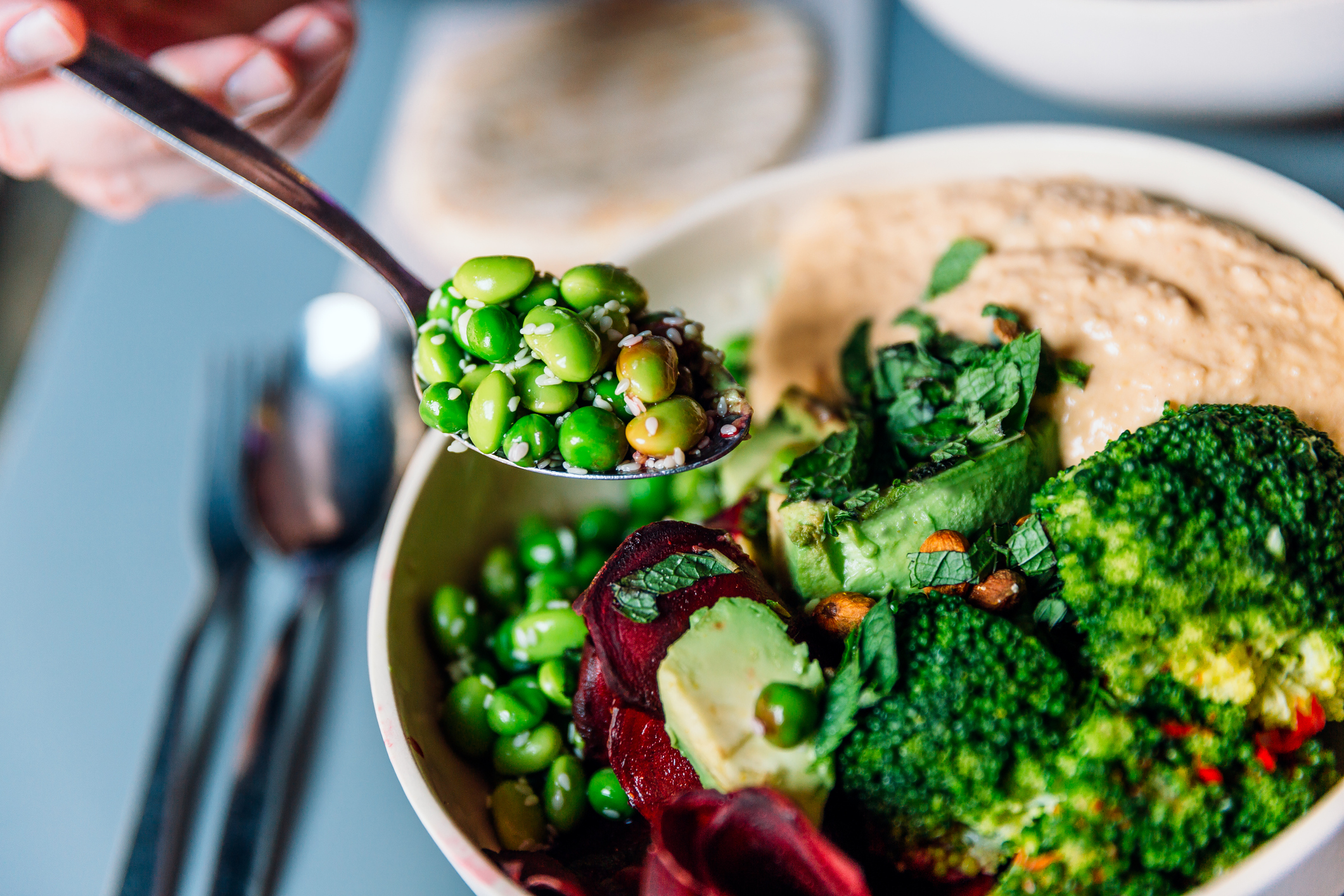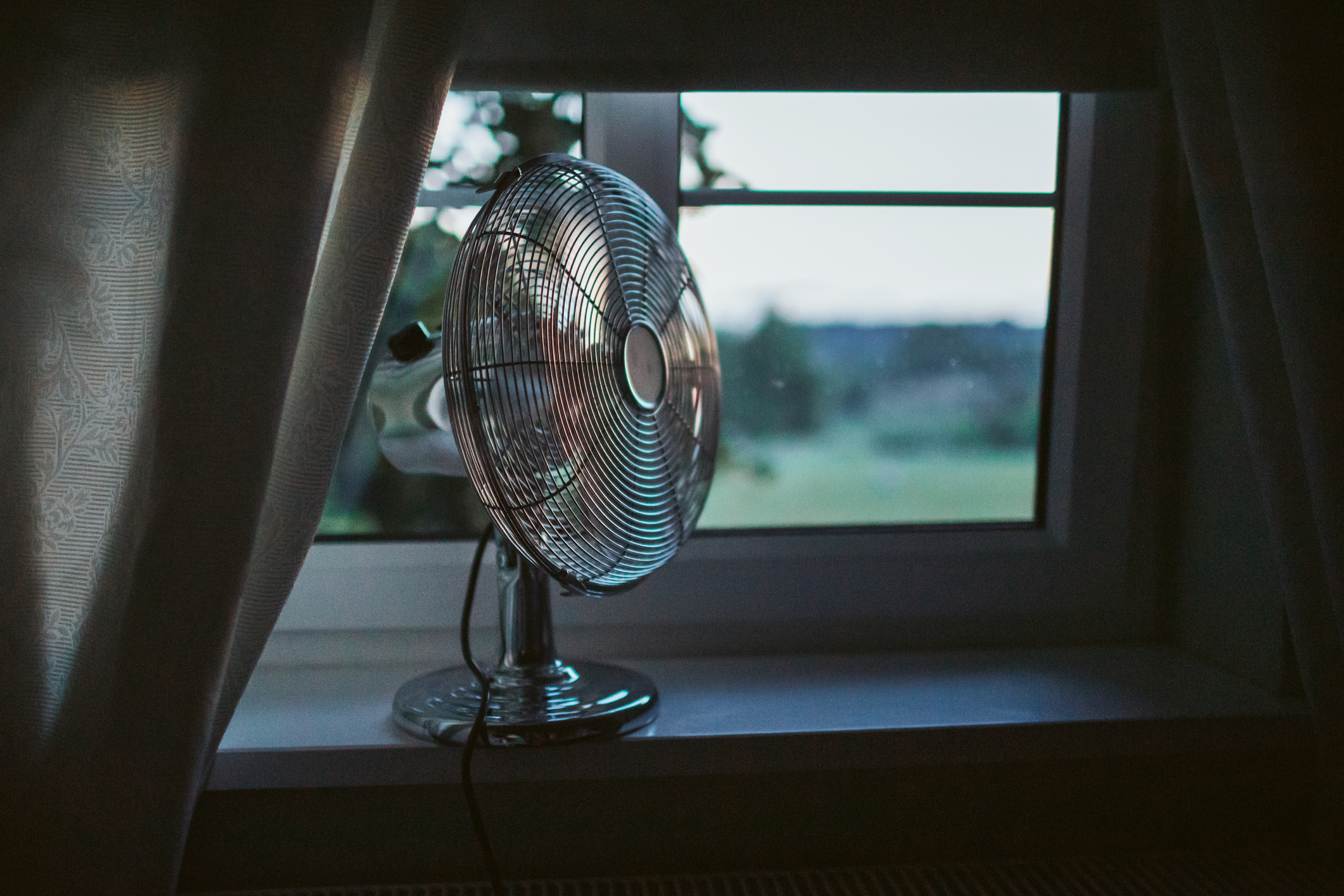How to fall asleep fast: 11 speedy sleep techniques that experts swear by
Learning how to fall asleep fast can be easy with these expert-approved methods

Knowing how to fall asleep fast is a game-changer if you lie awake tossing and turning for hours on end. Here, we share 14 speedy sleep techniques that will have you snoozing in no time.
We've all found ourselves lying awake in the middle of the night, watching the clock ticking closer to our wake-up time, frustrated that we just can't drift off. With an estimated 50% of people missing out on shut-eye during the night, you're certainly not alone. And, while there are many factors that play into how quickly you can get to sleep, high-stress levels and a poor sleep environment are often what wreak havoc on the body before bedtime.
But fear not, from the best sleep meditation to the best pillows and natural cures for insomnia, our experts are on hand with quick fixes for how to fall asleep fast right now and longer-term solutions for transforming your nighttime routine.
How to fall asleep fast if you struggle to nod off
1. Have a hot shower
Winding down from the day with a hot shower one to two hours before you get into bed is a great way to improve your evening routine, explains Dr Greg Potter, a sports massage therapist and coach who specializes in sleep.
It might be tempting to forgo creating a good bedtime routine in favor of getting into bed a little earlier, especially if you're looking to learn how to fall asleep fast, but having a shower, with all the extra aromatherapy benefits of steam and shower gel, do wonders for relaxing the body and getting your mind tuned in for sleep. There are even studies to prove it, with research from the University of Texas showing that those participants who had a warm shower before bed had better quality sleep than those who didn't.
Stick to a temperature of about 104 degrees Fahrenheit for 10 to 15 minutes for the best results. "This will raise your skin temperature, which, counterintuitively, will then speed the rate at which your core temperature drops, leading you to nod off faster and into higher quality sleep," explains Dr Potter, who is also Resilient Nutrition's chief science officer.

2. Put away any electronic devices
Whether you're looking for how to fall asleep fast or just generally want to sleep better, the first thing you should do is put away your phone or tablet, and turn off the television.
Sign up to our free daily email for the latest royal and entertainment news, interesting opinion, expert advice on styling and beauty trends, and no-nonsense guides to the health and wellness questions you want answered.
There are two important factors involved in how well we sleep: our levels of melatonin production, a hormone that's essential for sleep, and the stability of our circadian rhythm, the 24-hour cycle that's part of the body's internal clock.
While any kind of light is disruptive, technological light - which includes powerful blue light - is particularly damaging to a good night's sleep as it suppresses the secretion of the hormone melatonin and shifts our circadian rhythm around. In one study, researchers from Harvard University compared the effects of six and a half hours of blue light exposure to green light, a different hue, on melatonin production. They discovered that blue light quashed melatonin levels for about twice as long as green light and disrupted circadian rhythms by as much as three hours.
So replying to messages, scrolling on Facebook, or flicking through emails before you go to sleep could be wreaking havoc with your sleep. "Smartphones expose you to alerting light and their content is also often mentally stimulating. It's easy to lose track of time when using them too," Dr Potter says. "Turn off your smartphone at least 30 minutes before bed." Noted!
3. Turn down overhead lights
It's not just light from technology that disrupts melatonin production and our circadian rhythm. Having a bright sleep environment, complete with a powerful overhead light, will produce the same negative effects and it's going to prevent you from falling asleep quickly.
"Your sleep environment is very important for helping you fall and stay asleep," explains The SleepGeek aka James Wilson, a sleep expert and co-founder of BeingWell. "We've all experienced the struggle of trying to kip somewhere that's noisy, too hot, uncomfortable, or brightly lit. Creating a pleasant environment which promotes sleep will help you feel drowsy and get to sleep easier."
But, you don't have to settle down to sleep in darkness, Dr Potter says. You just have to reduce light exposure one to two hours before trying to go to sleep. This will also help if you're wondering how to wake up early, as you'll have better sleep throughout the night and be able to get out of bed in the morning.
"It's particularly important to reduce the intensity of overhead lighting, so dim these lights or turn them off and just use lamps at eye level or below during this time," says James.
Sleep scientist Theresa Schnorbach suggests incorporating warm red or orange light exposure into your evening routine. “Research has previously shown the effectiveness of red light therapy exposure in increasing melatonin levels – a hormone associated with controlling sleep – and boosting the quality of sleep,” Schnorbach explains. “Light with a lower brightness and warm color (such as red or orange) can therefore help before sleep, so I’d recommend building this kind of light into your wind-down routine in the evening.”

4. Have an early dinner
Experts have been urging us for generations to eat smaller meals at dinner, to help with everything from managing our weight to improving menopause symptoms. While the evidence isn't conclusive on the topic when it comes to sleep, chief scientist Dr Potter warns, "there is preliminary evidence that having an early dinner supports restorative sleep."
In a study by Florida State University looking at time-restricted eating, which typically entails elements of intermittent fasting where you restrict calorie intake to between 4 to 10 hours each day, researchers discovered that those who stopped eating earlier often slept better.
This is because the later dinner led to bigger blood sugar swings, a lower rate of fat burning, and raised levels of cortisol during the night. A combination that naturally keeps us on edge and makes a blissful night's sleep harder to reach.
But it's not just when you eat your dinner that's important, Dr Potter stresses, it's the amount of food you eat. In a study of women by Salk Institute for Biological Studies, researchers found that those who ate a bigger lunch and smaller dinner slept better than those who ate a smaller lunch and bigger dinner. "Overall, having a modest and relatively early dinner seems to reduce activity in the fight or flight branch of the autonomic nervous system, and it's probably best to go to bed neither hungry nor full," he says.
5. Avoid caffeine
Sleep scientist Schnorbach, who also works with Emma - The Sleep Company, adds that you should avoid caffeine in the afternoon and evening, and opt for herbal, sleep teas instead. “Caffeine binds to and blocks receptors that help to induce our sleepiness,” she explains. “Instead, a comforting, warm cup of tea can help soothe you to sleep and also contains ingredients that help you sleep.”
Instead, try teas like hibiscus, lavender, and valerian tea as they're some of the best sleep aids. “They are all known for their sleep-inducing effects although chamomile is most often associated with sleep,” Schnorbach adds. “Chamomile tea is a herbal, caffeine-free drink made from the plant’s dried flowers. It also contains a flavonoid called apigenin which can help in reducing feelings of anxiety and provide a calming, mildly sedative-like effect.”
6. Cool down your bedroom
One of the reasons that many of us struggle with how to sleep in the heat is because of rising temperatures. Whether it's because of natural heat or an overactive thermostat, turning down the temperature in your bedroom is a surefire way to make sure you get to sleep quicker.
"Try to keep your bedroom at a slightly lower temperature than the rest of your home," advises Wilson. "Between 60 to 62.6 degrees Fahrenheit is the official advice, but this is too prescriptive for me."
Find a cool temperature that suits you, as a chillier sleeping environment helps to drop your core temperature much in the same way that a warm shower before bed will, leading to an easy journey into sleep.

7. Invest in your sleep sanctuary
Creating a sleep sanctuary is important for promoting a good night’s sleep. “Having the right tools can help you fall asleep faster and even boost sleep quality,” Schnorbach explains. She suggests looking at your mattress, pillow, and bedding if you struggle to nod off at night.
It’s also important to consider your sleeping position and ensure your body is supported through the night. “A simple test to see if your pillow and mattress are effectively supporting your body is to check if your pillow is holding your head and neck in a neutral position,” explains Schnorbach. “This means your head, neck, and spine are aligned naturally.
“If you have the correct pillow, then when you lie down, you should be able to imagine a flat, horizontal line running up along the center of your spine, with your head and neck acting as a continuation of this line. If the line curves or bends, then your pillow and mattress might not be supporting you in the right way.”
Feel pain at night? Invest in one of the best pillows for neck pain or the best pillows for back pain to provide some relief. You may also want to consider which position and direction is best for sleep. It might not be something you’ve previously thought about, but it’s a Chinese feng shui tradition that’s been used for years.
8. Exercise regularly
Going for a run, heading to the gym, or completing the famous 12-3-30 workout during the day could be a key factor in how quickly you fall asleep at night.
"Exercise is terrific for sleep in general," explains Dr Potter. "Looking at all research to date, exercise program lead to people sleeping more efficiently, i.e. spending a smaller proportion of time in bed awake. They also sleep slightly longer and this is true of different types of exercise, including endurance training and strength training."
For the best chance at a good night's rest, exercise earlier in the day and avoid any strenuous exercise at least three hours before you go to bed.
9. Body scan meditation for sleep
A body scan meditation can help you relax and prepare your body and mind for rest. It may even be able to help you fall asleep in three minutes. As a mindfulness meditation practitioner, this is one of the techniques I swear by when sleepless nights strike. The good news? It’s easy to do alone and you can do it while tucked up under the duvet. Win!
How to carry out a body scan:
- Lay down and close your eyes and start to notice your breath. Take three deep breaths, inhaling through the nose, exhaling through the mouth.
- Bring your attention to your feet and slowly begin to move your attention from one body part to another, one by one until you reach the top of your head.
- Imagine a healing white light as the base of your feet slowly moving with your attention up your body.
- Allow yourself this time to just be, to be supported by the surface beneath you.
- Finish by cupping your hands over your eyes and take three deep breaths, inhaling through the nose and exhaling through the mouth.
10. Yoda nidra
Yoga nidra is a powerful and restorative practice that will have you falling asleep in no time. It's a must-try for those who struggle to relax at night and could help relieve sleep anxiety, too.
“Yoga nidra calms the nervous system, balancing our parasympathetic (rest and digest) and sympathetic (fight and flight) systems helping to calm the body and reduce stress and anxiety,” says yoga instructor Hannah Barrett. It's a great bedtime yoga practice as it relieves tension, preparing you for a deep and restful slumber.
How to practice yoga nidra:
- Lie in bed on your back in a savasana yoga pose.
- For extra comfort, place a blanket on top of you, put on an eye mask, or prop up a cushion under your knees.
- Relax your body. Ensure you're comfortable and ready for sleep.
- Listen to the short yoga nidra meditation above with your eyes closed.
- If your mind wanders as you listen, just bring your attention back to the voice.
- Allow yourself to fall asleep if it feels right.
11. Place your legs up a wall
Viparita Karani, also known as Legs Up The Wall, is a gentle and restorative yoga pose with lots of benefits. But, the good news is, you don't have to be a yogi to do this pose.
“Before bed I take 10 minutes to lay down, shuffling as close to a wall as is comfortable and then sliding my legs up, allowing the weight of them to rest on the wall itself,” Jessica Sepel, health author and sleep specialist.
Just a few minutes of lying in this position will help to promote lymph flow, improve circulation, and allow you to release any tension you might be holding from the day.
How to fall asleep in 5 minutes
As a mindfulness meditation practitioner and someone who knows a lot about manifestation before sleep, I often recommend breathing exercises to my clients who struggle to sleep. Three that I swear by include:
- Box breathing
- 4-7-8 breathing technique
- The military technique
Learning how to fall asleep fast, in no more than five minutes, is no mean feat. What you do throughout your day will impact how quickly and easily you fall asleep, but the good news is these three breathing exercises can support you in nodding off quickly.
Meditation and breathwork kickstart the body’s parasympathetic nervous system and the rest and digest response. This is a direct neutralizer to the fight-or-flight response, and it helps to relax the body and the mind by reducing our heart rate, breathing rate, and blood pressure, and increasing melatonin - the hormone associated with sleep. Deactivating the stress cycle and calming both body and mind mimics the physiological changes we experience in the early stages of sleep.
“Breathing techniques can also help release deep emotional blockages,” explains breath coach Stuart Sandeman, founder of Breathpod. “It can give you a stronger connection to self, deeper relaxation, and clear any feelings of lack and limitation. This technique will help to slow the mind so that you can nod off to sleep.”
Breathing meditations for sleep
Box breathing technique
- Imagine a box in your mind
- As you imagine one side of the box - inhale through your mouth for a count of four
- As you imagine the top of the box - hold for a count of four
- As you imagine the other side of the box - exhale through your nose for a count of four
- As you imagine the bottom of the box - hold for a count of four
- Repeat three-five times.
4-7-8 breathing technique
- Inhale through the nose for a count of four.
- Hold breath for a count of seven.
- Exhale through pursed lips for a count of eight.
- Repeat four rounds maximum.
The military technique
- Get into a comfortable position.
- Relax your face.
- Drop your shoulders.
- Let your body go limp.
- Clear your mind for 10 seconds.
- Take a deep breath and repeat.
How to go back to sleep after a nightmare
“Firstly, If you’re having trouble drifting off, don’t stress about it. It’s important not to get stuck in a cycle of feeling panicked about sleeping, as this will just make it harder,” says Sepel, who is also the founder of JSHealth.
Waking up from a nightmare can be distressing, and might even trigger your body’s fight or flight response. This boost of adrenaline can certainly make it difficult to relax and fall back asleep.
If you do struggle to get back to sleep after a nightmare, it’s a good idea to try something relaxing to calm your body and mind down and get it ready for sleep once again. You could try breathwork, meditation, yoga nidra, or mindful drawing.
Does lying down with eyes closed count as sleep?
While rest can be productive, sadly lying down with your eyes closed won’t have the same benefits as sleep. “Lying down isn’t completely useless, it does help your muscles and other organs relax,” explains Sepel. “But, you’d get the same results just from reclining on the couch. When we sleep, our bodies repair and recharge, which helps us heal, and these processes won’t occur simply just from resting.”
Sleep scientist Schnorbach adds, “Resting before sleep can still be beneficial as it can act as part of your 'wind down' time, helping your body to relax and prepare for sleep."
She also notes that if you’re concerned you’re not getting enough sleep (see our guide to how much sleep people 38 and over really need) or your sleep is regularly of poor quality, you should speak to your doctor for further advice.
When to get out of bed if you can't sleep
Sometimes you just have to call a spade a spade and admit that your sleep isn’t coming as easily as you’d like it to. In this case, it might be best to move when you first start tossing and turning. “It may benefit you to get out of bed and do something else for around 20 minutes,” advises Schnorbach. “Activities during this time should still promote rest, like reading a book, and not be things that could cause further disruption to your sleep.”
Looking at tech, for example, could stimulate your brain and keep you awake for longer. Instead, you could try journaling or listening to relaxing music.
If you are struggling to get to sleep at night, Schnorbach suggests assessing your sleep hygiene. "This refers to a set of behavioral and environmental recommendations used to promote sleep, and these could be impacting your ability to sleep through the night,” she says.
Failing that, it might be time to consider a longer-term plan of CBD for sleep, investing in a good sleep tea, or taking sleep supplements for a few weeks. Unlike prescribed sleeping pills, these products are made from herbal or natural ingredients that promote sleep, such as valerian root, tryptophan, and even melatonin itself.
Ciara McGinley is a meditation practitioner and health journalist. She qualified as a meditation teacher with the British School of Meditation in 2020 and is the founder of Finding Quiet, a series of classes, workshops and retreats that combine meditation practices and mindfulness techniques to make mindful living realistic in an always-switched-on modern world. She is all about bettering that mind-body connection but believes wellness looks different to everyone.
Ciara is also the former Health Channel Editor at woman&home and has covered all things health and wellbeing for years, from fitness to sleep to relationships.


